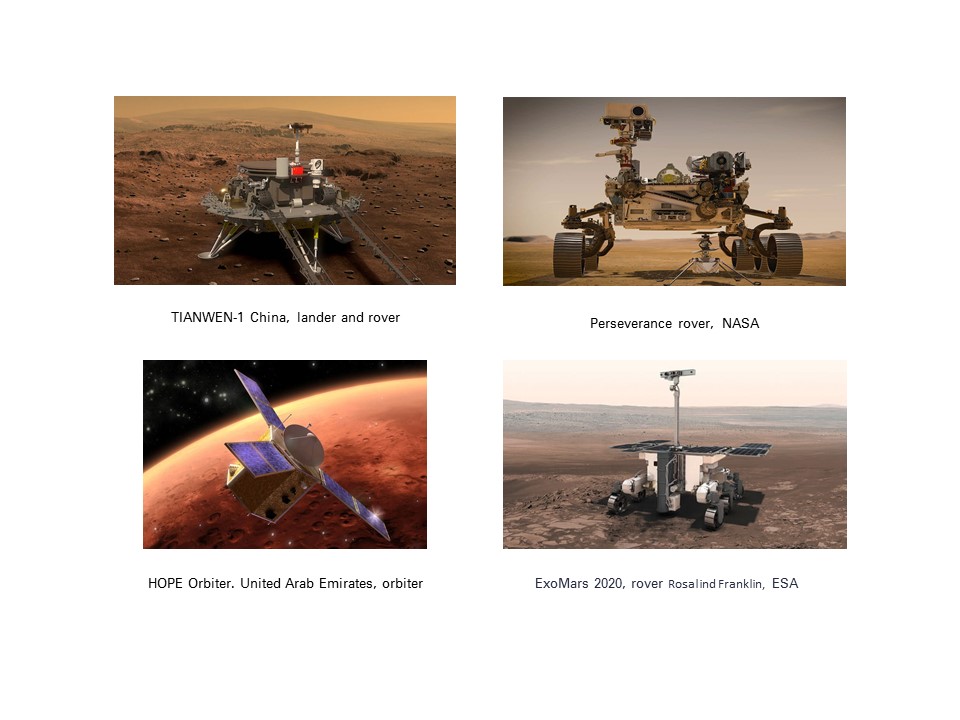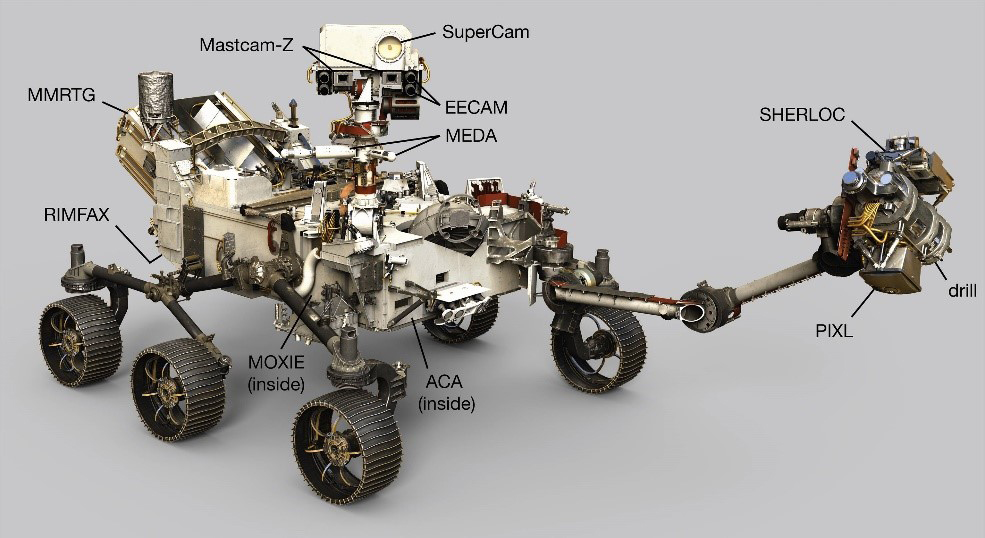Three international missions will arrive at Mars shortly, and all of them have technologies tested at ALTER TECHNOLOGY.
The Chineese Tianwen-1, NASA's Perseverance rover and Hope Orbiter from the United Arab Emirates. Exomars 2020 from the European Space Agency was also ready, but ESA has decided to postpone it because of the pandemic until the next launch window.
ALTER TECHNOLOGY Spain, France and UK, have been involved in the four projects, by providing its specialized services in the field of the onboard electronic components (technological evaluations, procurement and acceptance testing). Three new successes of our customers which represents, at least a bit, our success.
Perseverance
On Feb. 18, 2021, NASA’s Mars Perseverance rover makes its final descent to the Red Planet.
The aim of Perseverance is to find, if it exists, extraterrestrial life using a series of new instruments that will allow the composition of the planet to be analysed more thoroughly than its predecessors. If clues are found, Perseverance will collect samples that will eventually be returned to Earth in the future. For all this, Perseverance has been equipped with the best technological instruments of the moment.
One of them is MEDA (Mars Environmental Dynamics Analyser), developed by the Astrobiology Centre (INTA-CSIC), with the participation of Alter Technology among other companies, and which is responsible for characterising the climate of Mars, which is crucial for future manned missions.
The activities performed at Alter Technology Spain and UK were, vibration, vacuum, radiation and extreme temperature testing for MEDA. As well as in the design of the encapsulation and validation of the MEDA ASIC.
The MEDA instrument will be in charge of environmental and surface dust characterisation, recording all these quantities continuously for the duration of the mission.
Alter Technology France was one of the french industrial partners of the SuperCam by the procurement of electronic components and the testing of the microphone.
SuperCam is capable of performing five different types of analysis: measurement of elemental chemical composition, two kinds of molecular measurements (bonding and arrangement of atoms within minerals), an imager to acquire pictures of targets analysed and the first ever science microphone to be operated on the surface of Mars. It will remotely survey the chemistry and mineralogy of Mars, as well as the composition of its atmosphere.

